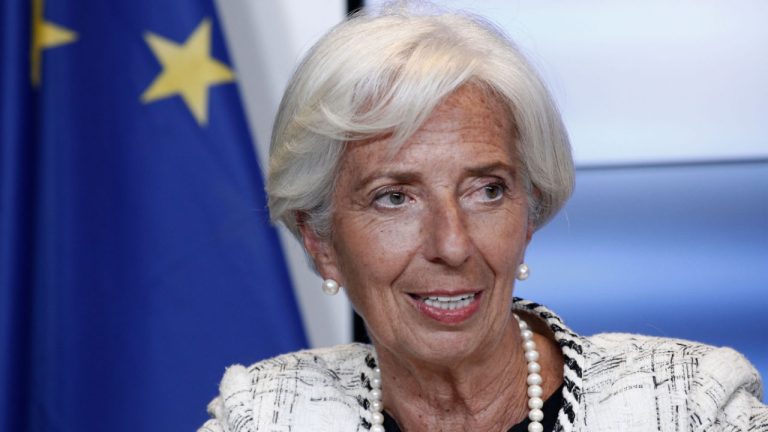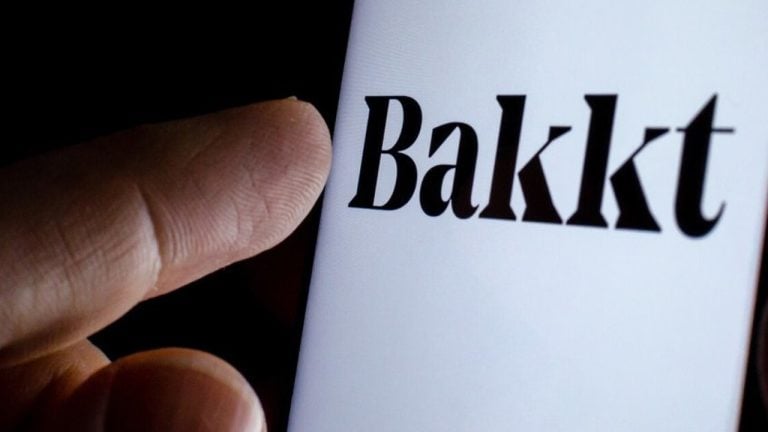 Investigative journalist James Corbett has recently referred to the ongoing global banking crisis involving SVB, Signature Bank, Credit Suisse and others as the “Panic of 2023,” drawing comparisons to what he views as historical precedents, and pointing ahead to an inevitable and bleak, technocratic surveillance future leveraging central bank digital currencies (CBDCs) should nothing be […]
Investigative journalist James Corbett has recently referred to the ongoing global banking crisis involving SVB, Signature Bank, Credit Suisse and others as the “Panic of 2023,” drawing comparisons to what he views as historical precedents, and pointing ahead to an inevitable and bleak, technocratic surveillance future leveraging central bank digital currencies (CBDCs) should nothing be […]
American venture capital investor Tim Draper warned business founders to prepare for “more and more” bank failures if the government continues to “print money and whipsaw interest rates.“
American venture capital investor and entrepreneur Tim Draper suggested founders keep at least two payrolls worth of cash in Bitcoin (BTC) or alternative cryptocurrencies, along with other diversification recommendations, in response to the uncertainty created by the collapse of Silicon Valley Bank (SVB).
In a March 25 report directed at business founders, Tim Draper stated that Bitcoin is a hedge against a “domino run” on the banks and overbearing government intervention, adding that businesses “can no longer rely” on a single bank or governing body to manage their cash.
Some tips for business cash management post SVB. https://t.co/dVEw0EJJyZ #bitcoin #trust #freedom
— Tim Draper (@TimDraper) March 24, 2023
Draper suggested that business founders keep at least “6 months of short-term cash” in two separate bank accounts — one with a local bank and another with an international bank.
He noted that businesses should also have at least two payrolls “worth of cash” in Bitcoin and other cryptocurrencies.
These preventative steps were necessary, according to Draper, because for the “first time in many years,” governments are seizing control of banks, and governments themselves are “at risk of becoming insolvent.”
He further revealed that “many startups” sought emergency relief from him after SVB and other banks shut down.
Additionally, Draper emphasized the importance of contingency plans, as boards and management are responsible for meeting payroll deadlines “even in times of crisis.“ He added:
“It is important to build out contingency plans for bank failures that could happen more and more often if the government continues to print money and whipsaw interest rates to counteract inflation caused by the over-printing of money.”
Draper reminded founders to be vigilant against the risk of fraud, noting that fraudsters are skilled at identifying weaknesses in a system and exploiting them.
Furthermore, to prevent phishing theft, he advised founders to verify with all parties involved whenever there is a change in wire instructions or a new approval system.
Related: Silicon Valley Bank’s downfall has many causes, but crypto isn’t one
This comes after recent news that Draper performed a self-composed Bitcoin song after his keynote speech at Paris Blockchain Week 2023 on March 22.
He said the song was dedicated to SVB and “all the banks that have failed and will fail.”
The song received a round of applause from the audience, with Draper concluding his time on stage by saying blockchain, Bitcoin and smart contracts make up one of the “greatest transitions in the history of the world.”
 The digital euro has an important role in preserving the payment autonomy of Europe, the head of the eurozone’s monetary authority emphasized. The new currency, which is still under development, is meant to be sovereign and safe, cheap and widely available, Christine Lagarde assured during a discussion devoted to central bank digital currencies. Payment Cards […]
The digital euro has an important role in preserving the payment autonomy of Europe, the head of the eurozone’s monetary authority emphasized. The new currency, which is still under development, is meant to be sovereign and safe, cheap and widely available, Christine Lagarde assured during a discussion devoted to central bank digital currencies. Payment Cards […]
The acute cash shortage in Nigeria was due to the central bank’s decision to replace older bank notes with bigger denominations amid rising inflation.
Nearly 18 months after launching its in-house central bank digital currency (CBDC), eNaira, Nigeria witnessed its massive adoption as national fiat reverses face severe shortages.
The acute cash shortage in Nigeria was due to the central bank’s decision to replace older bank notes with bigger denominations amid rising inflation. While developing nations were among the first to acknowledge the importance of a CBDC in revamping fiat capabilities, the idea is yet to materialize.
However, in the case of Nigeria, the lack of physical cash forced citizens to opt for the eNaira. In a country where cash accounts for about 90% of transactions, the value of eNaira transactions increased 63% to $47.7 million (22 billion naira), revealed a Bloomberg report.
Moreover, according to Godwin Emefiele, governor of the Central Bank of Nigeria, the total number of CBDC wallets grew more than 12 times when compared to October 2022 — currently at 13 million wallets.
Magazine: Unstablecoins: Depegging, bank runs and other risks loom
The demonetization reduced the circulating cash supply from 3.2 trillion nairas to 1 trillion nairas. Compensating for this decline, Nigeria minted over 10 billion nairas in CBDC. In addition, eNaira payouts in government initiatives and social schemes also contribute to the increase in CBDC’s adoption.
For developing countries, CBDCs present a way to overcome challenges presented by the fiat economy, which includes reducing operating costs and strengthening anti-money laundering (AML) initiatives.
“The eNaira has emerged as the electronic payment channel of choice for financial inclusion and executing social interventions,” concluded Emefiele.
Related: eNaira is ‘crippled‘: Nigeria in talks with NY-based company for revamp
Amid the cash crunch, Nigerians have been presented with another option for procuring cryptocurrencies. MetaMask’s parent firm ConsenSys recently announced a new MoonPay integration, which allows Nigerians to purchase crypto via bank transfers.

As shown in the above screenshot, the new feature is available within the MetaMask mobile and Portfolio DApp, significantly simplifying the process of buying crypto without using credit or debit cards in Nigeria.
 An investigation into digital asset exchanges in the Russian capital has established that some of them are ready to buy digital coins and deliver paper money in the U.K. The transfer of funds does not usually involve the identification of the clients, Transparency International Russia reveals in a report. Russia-based Cryptocurrency Exchanges Swap Stablecoins for […]
An investigation into digital asset exchanges in the Russian capital has established that some of them are ready to buy digital coins and deliver paper money in the U.K. The transfer of funds does not usually involve the identification of the clients, Transparency International Russia reveals in a report. Russia-based Cryptocurrency Exchanges Swap Stablecoins for […] On Saturday, March 11, 2023, crypto advocates are concerned as a few stablecoin assets have depegged from their $1 parity. The second-largest stablecoin USDC, issued by Circle Financial, fell below $0.90, reaching a low of $0.877 per coin. Additionally, around five other stablecoins have dropped below the U.S. dollar parity during the early morning (ET) […]
On Saturday, March 11, 2023, crypto advocates are concerned as a few stablecoin assets have depegged from their $1 parity. The second-largest stablecoin USDC, issued by Circle Financial, fell below $0.90, reaching a low of $0.877 per coin. Additionally, around five other stablecoins have dropped below the U.S. dollar parity during the early morning (ET) […] PWC, one of the ‘Big Four’ auditors and among the largest professional services networks globally, recently published a report on FTX Digital Markets, the bankrupt crypto exchange’s Bahamian subsidiary. The report indicates that the entity’s accounting records have been limited, and it also noted that there is “little distinction between what represents potentially client monies […]
PWC, one of the ‘Big Four’ auditors and among the largest professional services networks globally, recently published a report on FTX Digital Markets, the bankrupt crypto exchange’s Bahamian subsidiary. The report indicates that the entity’s accounting records have been limited, and it also noted that there is “little distinction between what represents potentially client monies […] Bakkt Holdings Inc. announced Monday that it will solely focus on business-to-business technology solutions and discontinue its consumer application. The company stated that the app will officially be discontinued on March 16, 2023, and app users will continue to have access to all of their assets. Bakkt Consumer App to Sunset, Loyalty Points Still Accessible […]
Bakkt Holdings Inc. announced Monday that it will solely focus on business-to-business technology solutions and discontinue its consumer application. The company stated that the app will officially be discontinued on March 16, 2023, and app users will continue to have access to all of their assets. Bakkt Consumer App to Sunset, Loyalty Points Still Accessible […] Federal prosecutors have seized $697 million in assets, mostly comprised of more than 56 million Robinhood shares worth $526 million, from FTX co-founder Sam Bankman-Fried. Court filings detailed that the U.S. government seized a series of bank accounts belonging to Bankman-Fried, holding millions in cash. US Government Seizes Millions in Cash and Robinhood Shares From […]
Federal prosecutors have seized $697 million in assets, mostly comprised of more than 56 million Robinhood shares worth $526 million, from FTX co-founder Sam Bankman-Fried. Court filings detailed that the U.S. government seized a series of bank accounts belonging to Bankman-Fried, holding millions in cash. US Government Seizes Millions in Cash and Robinhood Shares From […]
At this point, the test network for the Norwegian CBDC uses not the public Ethereum ecosystem, but a private version of the enterprise blockchain Hyperledger Besu.
The small Nordic country of Norway may not be particularly notable on the global crypto map. With its 22 blockchain solution providers, the nation doesn’t stand out even at the regional level.
However, as the race to test and implement central bank digital currencies (CBDCs) accelerates every day, the Scandinavian nation is taking an active stance on its own national digital currency. In fact, it was among the first countries to begin the work on a CBDC back in 2016.
In recent years, amid a rise in cashless payment methods and concern over cash-enabled illicit transactions, some Norwegian banks have moved to remove cash options altogether.
In 2016, Trond Bentestuen, then an executive at major Norwegian bank DNB, proposed to stop using cash as a means of payment in the country:
“Today, there is approximately 50 billion kroner in circulation and [the country’s central bank] Norges Bank can only account for 40 percent of its use. That means that 60 percent of money usage is outside of any control.”
A year before that, another large Norwegian bank, Nordea, also refused to accept cash, leaving only one branch in Oslo Central Station to continue handling cash.
This sentiment came in parallel with Bitcoin (BTC) enthusiasm, as DNB enabled its customers to buy BTC via its mobile app, local courts demanded that convicted drug dealers pay their fines in crypto, and local newspapers widely discussed investments in digital assets.
Recent: Bitcoin mining in a university dorm: A cooler BTC story
Last year Torbjørn Hægeland, executive director for financial stability at Norway’s central bank, Norges Bank, outlined to the project’s goal of replacing cash use in the country:
"With this background, the decline in cash use and other structural changes in the payment system are key drivers for the project."
The experimental phase of the Norwegian CBDC will last until June 2023 and end with recommendations from the central bank on whether the implementation of a prototype is necessary.
In September 2022, Norges Bank released the open-source code for the Ethereum-backed digital currency sandbox. Available on GitHub, the sandbox is designed to offer an interface for interacting with the test network, enabling functions like minting, burning and transferring ERC-20 tokens.
However, the second part of the source code, announced to go public by mid-September, has yet to be revealed. As specified in a blog post, the initial use of open-source code was not a “signal that the technology will be based on open-source code,” but a “good starting point for learning as much as possible in collaboration with developers and alliance partners.”

Earlier, the bank revealed its principal partner in building the infrastructure for the project — Nahmii, a Norway-based developer of a layer-2 scaling solution for Ethereum of the same name. The company has been working on this scaling technology for Ethereum for several years and has its own network and tokens. At this point, the test network for the Norwegian CBDC uses not the public Ethereum ecosystem, but a private version of the enterprise blockchain Hyperledger Besu.
In late 2022, Norway became part of Project Icebreaker, a joint exploration with the central banks of Israel, Norway and Sweden on how CBDCs can be used for cross-border payments. Within its framework, the three central banks will connect their domestic proof-of-concept CBDC systems. The final report for the project is scheduled for the first quarter of 2023.
In terms of hopes and fears, what defines the Norwegian CBDC project among others is the national regulatory context. Like its geographical neighbors, Norway is known for its cautious approach to the digital assets market, with high taxes and the relatively small scale of its domestic crypto ecosystem — a recent study by EU Blockchain Observatory estimated its total equity funding at a modest $26.9 million.
Norwegian serial entrepreneur Sander Andersen, who has recently moved his fintech company to Switzerland, doubts that the upcoming project will co-exist peacefully with the crypto industry. There are already more than enough problems for tech entrepreneurs in the country, he said in a chat with Cointelegraph:
“Despite the country's strong infrastructure for entrepreneurs in other industries, such as low energy costs and free education, these benefits do not extend to the digital realm. The tax burden faced by digital companies makes it nearly impossible to compete with businesses based in more business-friendly jurisdictions.”
As central bank digital currencies have the potential to compete with private cryptocurrencies, and the goal of any government is to control financial transactions as tightly as possible, Andersen doesn’t see Norway among the exceptions:
“The Norwegian central bank's CBDC project can also pose a threat to the legal status of private stablecoins in the country. The introduction of a CBDC may prompt increased regulation and oversight of private stablecoins, making it harder for these companies to operate.”
Speaking to Cointelegraph, Michael Lewellen, head of solutions architecture at OpenZeppelin, a company contributing its contracts library to the Norges Bank project, doesn’t sound so pessimistic. From a technical perspective, he emphasized, there is nothing stopping private stablecoins from trading and operating alongside CBDCs on both public and private Ethereum networks, especially if they use common, compatible token standards such as ERC-20.
However, from a policy perspective, there’s nothing that can stop central banks from performing financial gatekeeping and enforcing the Know Your Customer (KYC) standards, and this is where the CBDC looks like a natural development. Banks will not sit idly by as the blockchain ecosystem grows, as there is a lot of shadow-banking activity happening on-chain, Lewellen specified, adding:
“CBDCs offer central banks the ability to better perform gatekeeping and enforce KYC rules on CBDC holders, whereas enforcing the same standards against entities using non-governmental stablecoins is far more challenging.”
Recent: Ava Labs and Amazon’s partnership could ‘expand the pie’ for blockchain
Could Norway’s CBDC offer anything reassuring in terms of users’ privacy? It’s hardly possible from both technological and strategic points of view, Lewellen said. Today, a mature solution doesn’t exist that would allow privacy in a compliant manner regarding the use of CBDCs.
Any national digital currency would almost certainly require every address to be linked to an identity, using KYC and other means we see in banks today. In fact, if done on the private ledger, like the one that Norges Bank is testing right now, the CBDC will offer not only less privacy for a single customer, but at the same time less public transparency with regard to blockchains.